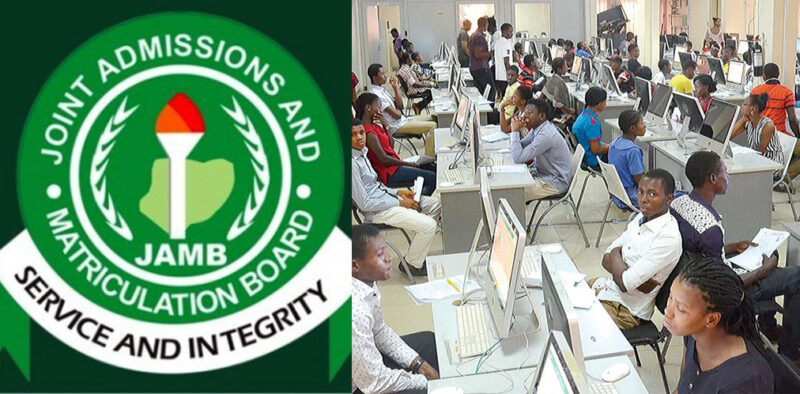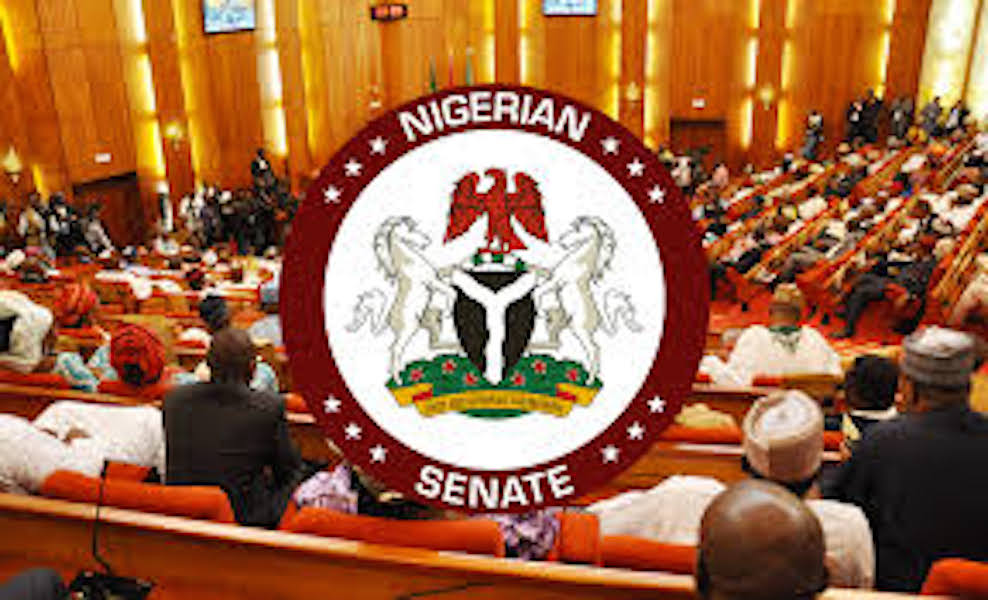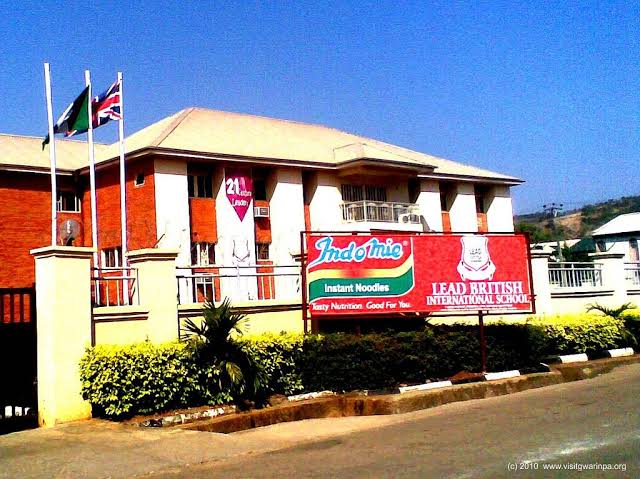Education
ASUU dismisses FG’s N52.5bn, says strike likely soon

The Academic Staff Union of Universities has said the N30bn Revitalisation Fund and N22.5bn Earned Academic Allowance totalling N52.5bn released by the Federal Government is not enough to deal with the challenges facing the university system.
The ASUU President, Prof Emmanuel Osodeke, noted in an interview with Sunday PUNCH that there was a possibility that the union would still go on strike, unless the government addressed its demands, including the 2009 agreement.
The Federal Government had said it paid lecturers N30bn Revitalisation Fund and N22.5bn Earned Academic Allowance. It noted that it had made some progress in implementing the Memorandum of Understanding the government reached with the union.
Osodeke described the fund released by the government as a token payment, adding that it was not enough for lecturers to change their minds on the suspended strike.
He, therefore, asked the Federal Government to address the issues concerning the Integrated Payroll and Personnel Information System, which the union rejected and asked to be replaced with the University Transparency, Accountability Solution. He also said renegotiation and resuscitation of universities had not been addressed.
The union suspended its nine months strike on December 24, 2020 after its National Executive Council met over the understanding the union had with the Federal Government. The union commenced the strike over the non-payment of salaries of its members who failed to enroll into the Integrated Payroll and Personnel information system and some other agreements the union had with the government.
READ ALSO:
- Siblings drown in Kwara river on New Year’s eve
- Mbaka: My persecutors planned to drug, undress, film me among prostitutes
- Police kill 38 bandits, lose 5 officers in Katsina – Arrest 152 robbers ,999 suspects
The union gave deadlines and threatened that it would not hesitate to withdraw its services if the government reneged on its promises. The then President of ASUU, Prof Biodun Ogunyemi, said, “What we have done is to give the government the benefit of doubt and that is why we have added the caveat. Should the government renege, our members are not tired of withdrawing their services.”
The suspended strike began in March over the non-payment of salaries of ASUU members who failed to enrol into the Federal Government’s IPPIS, a payroll software mandated for all public officials and some unmet agreements between ASUU and successive administrations. The union embarked on different strike actions since the agreement was signed in 2009.
Speaking on the N52.5bn fund, Osodeke stated, “There is an agreement and we want them to implement the agreement. The issue is not about money. There is the issue of renegotiation, there is the issue of resuscitation of the universities, and there is the issue of UTAS. So, you don’t just come and throw a little money and think the challenge has been resolved.
“This is what our political class is doing. They believe that once they throw a little money, everybody will run back. That is the problem. So, it is not about the token they have given. There are more fundamental issues.”
Osodeke stated that the planned strike in the new year was a possibility, adding that the union decided to shelve the strike earlier because the Nigeria Inter-Religious Council intervened and promised to prevail on the Federal Government to implement the agreement.
He added, “Our going on strike is a possibility. The only reason we relaxed is because a group, Nigeria Inter-Religious Council, intervened. We respect the group so much. The group told us they would intervene and they would ensure that the government implements our agreement. That is why we agreed to the benefit of the Federal Government.
“So, we decided we will give the Federal Government till the end of this year (2021) and see what it will do. Other groups also intervened. That explained why we relaxed going on strike, so that they will not say ASUU likes going on strike.
“The Federal Government should do the needful by embracing the agreement to prevent ASUU from going on strike. Nigeria as a whole will suffer the brunt of ASUU going on strike.”
But the Minister of State for Education, Chukwuemeka Nwajiuba, said there was no justification for another strike by ASUU, adding that the Federal Government had addressed the issues raised by the union.
READ ALSO:
- Flight cancellations top 2,500 in another chaotic day for air travel
- Siblings drown in Kwara river on New Year’s eve
- Mbaka: My persecutors planned to drug, undress, film me among prostitutes
He, however, explained that it might not be possible to stop any group that had made up its mind to embark on strike.
In an interview with one of our correspondents, he said, “I have always said my position is that even if you slap me, I will tell you that there is no justification for a strike. It doesn’t matter; if you like, you can kill a goat for the person, if he wants to go on strike, he would go. If you don’t kill a goat for him, and he doesn’t want to go on strike, he will not go on strike.
“Our objective is to train Nigerian children. That is the whole essence of the entire education spending. So, anything that you are in that is not in pursuant of that goal, you are losing means. The fact that you want to go on strike because there is a form of payment which is not accepted, you can decide you want to do that, nobody can beat you for doing that.
“There is no issue they (ASUU) have raised that we have not tackled. I don’t have any disagreement whatsoever with ASUU, none at all. That has always been my position. My attitude is if you want to work, you will; if you don’t want to work, you will not.”
The minister said ASUU understood the implication of its actions and the impact on the education system. He added, “The only reason we asked them to come and lecture is to deliver content for the children.
“They said you didn’t pay them; you paid them, they say it is not enough. You pay them the one they say is NEEDS assessment, they have not even finished utilising the last one, they said you must bring another one. We said okay, we agreed. They said send money for earned allowance, we sent it.
“Anything they say, we have done. But they say they don’t like the way we are doing it. So, are you going to beat somebody who does that.”
On what the Federal Government planned to do if the union goes on strike, the minister said there was no Plan B since there was no possibility of hiring lecturers from the moon.
He said, “If they go on strike, there is no Plan B. We are not going to recruit lecturers from the moon. There is no need for a strike. Nobody can tell me that a strike is needed for anything. If you don’t want to teach, say so, and not that you want to go on strike. For what? There is no basis for any strike in Nigeria.”
Stakeholders react
An educationist, Mercy Chepaka, appealed to both the government and ASUU to let the fate of the students and their parents guide them in taking any decision on the lingering issues between them.
He added, “When two elephants fight it’s the grass that suffers. Our children bear the brunt of any strike action by the union. These students need to be in school. Education is key and there is no need for them spending more years or even months than they should over issues that can be resolved.”
An educationist at a faith-based College of Education in Enugu State, Peter Onuigbo, also urged the Federal Government to attend to the needs of the union as ‘they are the needs of the people’.
“The government needs to listen to ASUU. The money they are talking about is not for funfair; it is for education. It is for our children. The matter has lingered for so much. How can one issue be on the front burner of national discourse for over 12 years? Education is a priority and it is the only way Nigeria can overcome poverty and a dwindling economy.
“ASUU has been patient enough, but we plead with them to meet with the government again. Let them speak to themselves, come to a conclusion and let this matter end so our children can enter for a programme and be sure of when they are graduating. I know some students who have been in school since 2015 for a four-year course because of these incessant industrial actions by the union.”
READ ALSO:
- Police kill 38 bandits, lose 5 officers in Katsina – Arrest 152 robbers ,999 suspects
- Buhari Queries N’Assembly For Introducing 6,576 New Projects In 2022 Budget
- Ganduje drops hint of possible reconciliation with Kwankwaso, Shekarau, others
Similarly, an educational administrator, Ikechukwu Onuoha, urged the Federal Government to ‘do the needful on the matter. He added, “I don’t want to begin to trade blames. Let the government do what is right. Any country that wants to grow must prioritise education. I also beg the union (ASUU) to sheath their swords and give the government some time to attend to their demands.”
Meanwhile, a professor of English and Dean, Faculty of Arts, University of Uyo, Akwa Ibom State, said he had no special appeal for the government on the matter as it seemed to him the Federal Government did not value public universities.
Decrying the level of decay in the system, he said, “Is it not ridiculous that when I became a professor, my salary was N467,000; now it has been reduced to about N416,000. The minimum wage which is supposed to bring an additional N50, 000 is even what made it N416,000.
“Why is it so if not because of the obnoxious thing called IPPIS which has reduced everybody’s salary? It is surprising that what we are earning as lecturers today is what was agreed upon in 2009. Since then, the lecturers in federal universities earn a continually-decreasing salary. After the renegotiation, for which the government set up the committee, would anyone tell me that such a government does not know what it would do?”
He also knocked the Minister of State for Education, Emeka Nwajiuba, saying he had not acted as someone who has the interest of the sector at heart.
He added, “Look at a country like Finland which has one of the best educational systems in the world; it does not have any private school. The reason is simple – the government funds all the schools and there is no payment of fees. So, the private institutions would be useless. That is a country. Take a look at Nigeria; we are headed towards the cave if this back and forth continues.
“My concern is no longer with the government but with Nigerians. Let them decide. Do they need public education? If they do, let them tell the government what to do. If not, let them stay and allow ASUU to fight alone. When ASUU stops fighting, the system will collapse and we will then realise.”
He said if the educational system collapses, it would fuel insecurity, as he appealed to Nigerians to fight for their rights to good education.
“How can the government wait till there is a strike before they can fund education? This is how you know they don’t care about the system,” he noted.
Punch
Education
Father arrested for helping son to sit UTME

Father arrested for helping son to sit UTME
The Joint Admissions and Matriculation Board (JAMB) has announced the arrest of a man and his son in the ongoing Unified Tertiary Matriculation Examinations (UTME).
The man was accused of impersonating the son and helping him to sit the UTME.
JAMB Registrar, Prof. Ishaq Oloyede, disclosed this while on inspection tour of the UTME centres in Kaduna on Wednesday.
He said the 2024 examinations were largely well conducted, except for few cases of impersonation, which became possible because some persons had multiple National Identity Numbers (NINs).
Oloyede warned against cheating in the exams, stressing that JAMB had improved its technology check on those engaging in all forms of examination malpractices.
The JAMB Registrar said, “For those who engage in cheating, they should know that it does not pay. The technology is helping us to check that.
“Across the country, most of the problem we have is impersonation. For instance now, we say we have NIN, we now have cases of people with two NINs.
Therefore, that has defeated the purpose of identity verification. We are going to take that up with NIMC, that there are people who have two NINs.
“We have a case of a father impersonating his son, sitting the examination for the son and I wonder. Are you not destroying your son’s future?
“Of course, two of them are now in custody. I can’t understand what the father will now tell his son when they are both locked up in the same cell. This happened definitely not in Kaduna, but I don’t want to disclose the state.”
Education
Senate backs education minister on 18-year entry age into varsities

Senate backs education minister on 18-year entry age into varsities
Members of Nigeria’s Senate endorsed the federal government’s decision to raise the minimum admission age to 18 years old.
Recall that the Minister of Education, Prof. Tahir Mamman, said on Monday that the entry age for higher institutions was 18 years old and cautioned parents not to force their children who are not yet of age to enroll.
The support was made public on Tuesday in Abuja when the Chairman of the Senate Committee on Tertiary Institutions and TETFund, Sen Muntari Dandutse, led other members of the committee as well as his House of Representatives counterpart to witness the ongoing UTME.
READ ALSO:
- Nollywood actor Zulu Adigwe is dead
- Produce copy of invitation to me, Bello challenges EFCC
- Ronaldo playing in Saudi league for money like me – Ighalo
Speaking with journalists after the exercise , the Senator representing Kogi West Senatorial District and member of committee, Sen Sunday Karimi, said the Senate has nothing against the proposal by the Minister of Education.
He noted that by restricting admission to students at least 12 years old before secondary school, the government aims to ensure that students possess the cognitive and emotional readiness necessary to navigate the challenges of secondary education effectively.
“By the time a student who entered into secondary school at the age of 12 years completes his secondary school programme, he is already at the age of 18 as stipulated,” he added.
Karimi also stated the law was already on the ground, adding that if that was needed for any amendment to make it stronger, the Senate will be ready to do that.
He commended JAMB for providing an enabling atmosphere for candidates to have a seamless exercise.
Senate backs education minister on 18-year entry age into varsities
Education
Abuja British school shut over student bullying viral video

Abuja British school shut over student bullying viral video
Abuja-based Lead British International School has been shut down for three days after a viral video showing an incident of bullying in the school.
This was announced on Tuesday during a press briefing attended by concerned parents on the school premises.
The viral video, which captured a female student being subjected to physical and emotional abuse by her peers, had sparked public outrage.

The footage depicted the victim being repeatedly slapped by another female student in an interrogation session.
The incident prompted widespread condemnation and calls for swift action to address the issue.
Head of Lead British International School, Abraham Ogunkambi, issued a statement on Tuesday, in response to the incident.
He stressed the school’s disapproval of the incident, adding that an investigation into the matter had commenced.
“The school management is treating this matter with the utmost seriousness,” Ogunkambi said.
He added that the school had already been in contact with the victim and her parents, offering support and counselling services to help them manage the emotional and psychological effects of the incident.
-

 Education5 days ago
Education5 days agoWhy we charge N42m fees for primary school pupils — Charterhouse Lagos
-

 News6 days ago
News6 days agoUpdated: More trouble for Yahaya Bello as Immigration places him on watch list
-

 Auto5 days ago
Auto5 days agoWe expect massive roll-outs of Nigeria-made cars by December 2024 – Minister
-

 metro5 days ago
metro5 days agoJUST IN : Borrow pit collapses, kills seven Qur’anic school pupils
-

 metro3 days ago
metro3 days agoHow gunmen killed Babcock university lecturer, abducted two – Police
-

 International6 days ago
International6 days agoUpdated: Tragedy hits Kenya, Defence chief, nine others die in military helicopter crash
-

 News4 days ago
News4 days agoWe’re not part of Yoruba Nation agitation, says MKO Abiola family
-

 Politics5 days ago
Politics5 days agoOndo APC primary: Ododo, gov aspirant in open confrontation




















